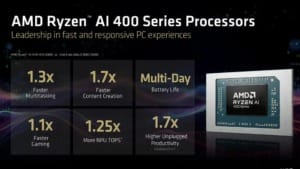Microsoft lifts the ban on free Windows 11 upgrades for previously ineligible Windows 10 PCs
Upgrade your Windows 10 PC to Windows 11 for free now! Resolve compatibility issues and enjoy new features.

If you own a Windows 10 computer, you can now upgrade to Windows 11 for free. Microsoft has lifted the ban that previously prevented certain Windows 10 PCs from getting the upgrade since November 2021.
If your Windows 10 computer is compatible, Microsoft will offer you a free upgrade to Windows 11. However, if your hardware is not compatible, Windows 11 will not install. Microsoft has now made the upgrade available for many Windows 10 PCs that were previously ineligible.
Resolving compatibility issues
Microsoft had been denying upgrades to Windows 11 for Windows 10 computers with an 11th-generation Intel Core Processor and specific Intel SST driver versions (10.29.0.5152 or 10.30.0.5152). This was due to the risk of encountering recurring blue screens of death after installing Windows 11.
You can resolve this issue by updating the Intel SST drivers yourself, enabling you to switch to Windows 11 at no cost. However, Microsoft had not been offering the upgrade to all other PC owners with the same CPU and driver combination.
To upgrade, simply download and install the latest Intel SST drivers via the Windows update function. Once Windows 10 has installed the driver update, you can proceed with the upgrade to Windows 11. Microsoft notes that it may take up to two days before Windows 10 offers the upgrade. Check Microsoft’s status page for the official release of the previously blocked Windows 10 PCs for the upgrade.
Windows 10 is still dominant.
It is uncertain whether these changes will significantly boost Windows 11’s market share. According to Statcounter, Windows 10 remains the most popular desktop operating system, holding a 69.05 per cent market share among all Windows systems in March 2024. Windows 10 even experienced a slight increase in market share in March 2024, while Windows 11 saw a slight decrease (26.68 per cent market share among all Windows systems).
In comparison, all Windows systems combined held a market share of 72.47 per cent in March 2024, with MacOS far behind at 14.68 per cent, according to Statcounter.
















